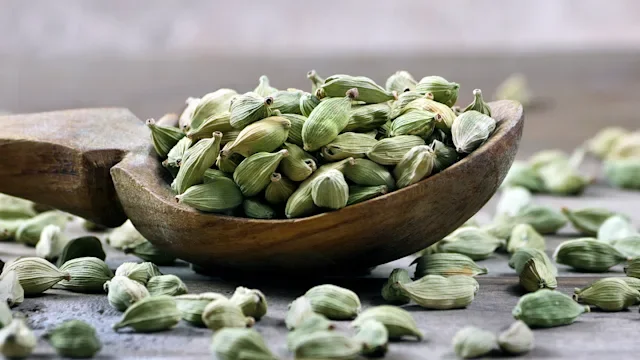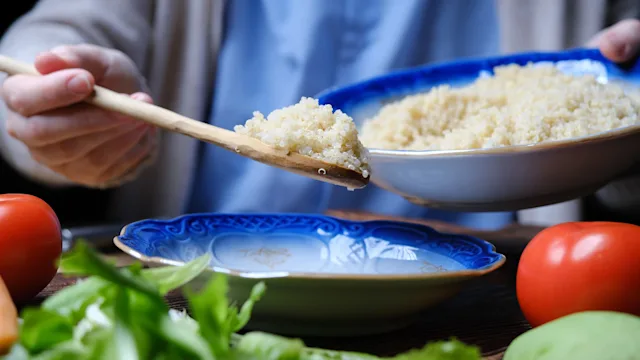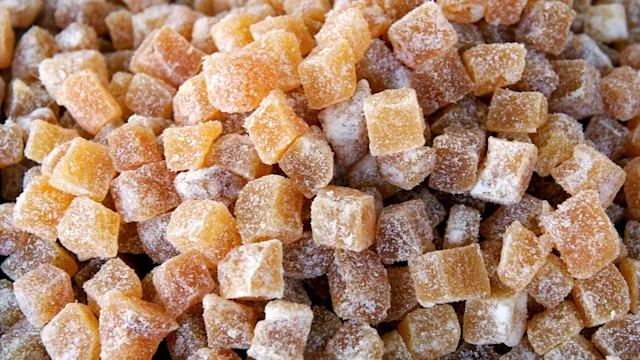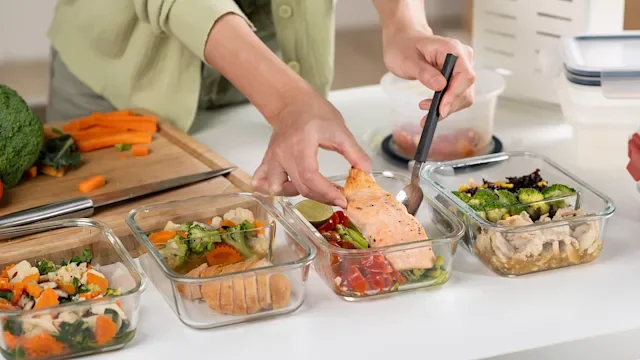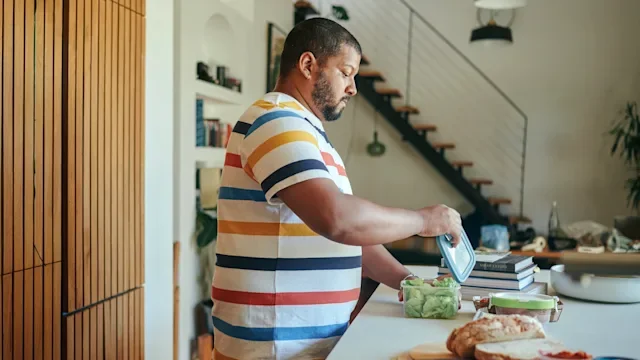Key takeaways:
Olive oil does expire. It typically lasts up to 18 months if unopened and up to 6 months after being opened.
Using expired olive oil won’t make you sick, but it may taste a little off. Expired olive oil also has fewer antioxidants than fresh olive oil.
To help olive oil last longer, store it in a cool, dry place, away from direct light and heat. Once olive oil has gone bad, you can use it for a non-food purpose or simply throw it away.
Olive oil is known as one of the healthiest oils. Its unsaturated fats improve heart health and blood sugar control. And its antioxidants reduce inflammation and protect cells from damage that can lead to chronic conditions. But like most foods, olive oil doesn’t last forever. Here’s what you need to know about its shelf life and how to store it properly to keep it fresh as long as possible.
Does olive oil expire?
Yes. Olive oil is made from the olive fruit, and like other fruit products, it doesn’t last forever. An unopened bottle of olive oil typically lasts about 12 to 18 months after the packaging date. Once opened, it’s best to use it within 3 to 6 months. Most store-bought bottles of olive oil have a “best by” date printed on them. If you don’t see one, make a note of the purchase and opening dates on the bottle to help you keep track.
The shelf life of olive oil can vary slightly depending on its exact mixture of antioxidants and fatty acids. The type of olive oil you’re using — extra virgin, regular, light, or extra light — may also influence how long it lasts.
Can you use expired olive oil?
Yes, you can use expired olive oil — it probably won’t make you sick — but there are some downsides. It won’t contain as many nutrients as fresh olive oil. And its flavor may be a little off, which may affect the taste of your food.
Olive oil expires, or “goes bad,” due to oxidation. Oxidation is a series of chemical reactions that break down a substance’s molecules. Some oxidation naturally happens over time. But exposure to air, high heat, and/or light can speed up the process. If you’ve ever noticed your cut fruit turning brown after sitting out for a while, that’s because of oxidation.
Oxidation affects olive oil in a few different ways:
It slightly reduces the amount of healthful antioxidants.
The healthy unsaturated fats can form free radicals, which can damage your body’s cells over time.
The flavor becomes slightly stale or sour (more on this below).
Since many people choose olive oil for its health benefits, regularly consuming expired olive oil — which is less nutritious — may not make much sense. To avoid this, store olive oil properly and consider purchasing smaller bottles so you can use them up before they expire.
How do I know if olive oil is bad?
You can often tell if olive oil has gone bad by its taste and smell. Rancid olive oil may taste stale and have a sour scent or flavor. Fresh olive oil, on the other hand, has a vibrant taste and a slightly fruity, bitter, or earthy aroma, like grass.
Interestingly, one study found that some consumers actually prefer the taste of rancid olive oil. The subjects in this study may not have been aware that the oil was rancid and may have simply become accustomed to its flavor. This is why it’s helpful to know what fresh olive oil tastes like so you can better compare.
How can olive oil boost your health? Olive oil is linked to a decreased risk of heart disease, lower low-density lipoprotein (LDL) or “bad” cholesterol, and lower blood pressure. But that’s not all.
Olive oil vs. vegetable oil: What are the differences between these two oils? And can you swap them in recipes? Here’s your guide.
The best (and worst) oils for cooking: To choose the best oil for cooking, consider its nutritional value, smoke point (burning point), and flavor.
How to store olive oil
Try to store olive oil in a cool, dry place. Keep it away from direct light and heat as much as possible, with the cap on tightly. Exposure to heat, light, and oxygen speeds up oxidation, which causes olive oil to go bad faster. Aim to store it at temperatures between 55°F and 70°F.
To store olive oil:
Keep it in a kitchen cupboard, away from the stove and oven. Storing it on the kitchen counter also works, but avoid this if your kitchen gets a lot of sunlight, or has bright lighting.
If your olive oil’s original packaging is a clear glass bottle, transfer the olive oil to a dark container.
Avoid refrigerating olive oil, as it can solidify at cold temperatures.
Read more like this
Explore these related articles, suggested for readers like you.
What should you do with expired olive oil?
While you can technically still consume expired olive oil, you may not want to. The good news is that there are plenty of other uses for it, including:
Household cleaning: Apply a small amount of olive oil to a cloth and use it to polish surfaces like stainless steel or leather.
Makeup removal: Put a few drops on a cotton ball and rub over your face, eyelids, or lips.
Loosening household items: Add a couple drops of olive oil to a spray bottle of water. Then, lightly spritz it onto the joints of squeaky or tight items, such as toys or tools.
Skin care: Use a drop or two as a moisturizer to hydrate dry skin (although olive oil is not recommended for eczema-prone skin).
Hair care: Olive oil may help soften hair and moisturize a dry scalp. Massage a small amount into dry or wet hair and let it sit for at least 30 minutes — or even overnight. Rinse it out in the morning, followed by a shampoo.
Nail care: Soak your nails in olive oil for 1 to 3 minutes a few nights a week to improve brittle nails and soften cuticles. Or simply rub olive oil directly onto your cuticles.
How to dispose of olive oil
Avoid pouring olive oil down your sink, as it can clog the drain. Instead, recycle it by bringing it to a local recycling agency that accepts oils. Or, you can pour cooled oil into a leakproof container and place it in the trash. If it’s just a small amount, you can add it to your compost bin.
The bottom line
Olive oil is a nutritious oil that contains healthy fats and high amounts of antioxidants. But it doesn’t last forever. An unopened bottle of olive oil can typically last up to 24 months after the harvest date. An open bottle can last 3 to 6 months.
Consuming expired olive oil won’t make you sick. But expired olive oil will taste a little off and provide fewer health benefits than fresh olive oil. To extend its shelf life, store it away from heat and light. If your olive oil has already expired, try using it for a non-food purpose. Otherwise, it’s best to throw it out.

Why trust our experts?



References
Australian Government Rural Industries Research and Development Corporation. (2024). The effect of storage conditions on extra virgin olive oil quality.
Delgado, C., et al. (2011). How do consumer hedonic ratings for extra virgin olive oil relate to quality ratings by experts and descriptive analysis ratings? Food Quality and Preference.
Garcia-Oliveira, P., et al. (2021). Evolution of flavors in extra virgin olive oil shelf-life. Antioxidants.
Geng, L., et al. (2023). Lipid oxidation in foods and its implications on proteins. Frontiers in Nutrition.
Sanmartin, C., et al. (2018). The effects of packaging and storage temperature on the shelf-life of extra virgin olive oil. Food Science and Nutrition.








